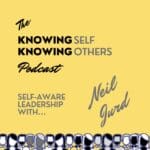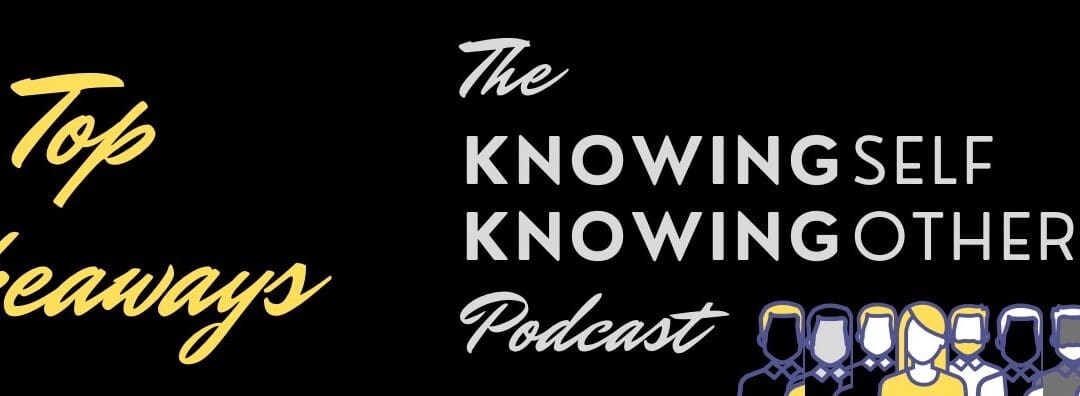I was delighted to be joined in conversation by Neil Jurd OBE, author of The Leadership Book in episode 2 of series 2 of The Knowing Self Knowing Others Podcast. Here’s are my Top Takeaways from our discussion…..
Self awareness is an applied awareness, it’s about how you interact and therefore influence others. When you develop your self awareness you need to be clear about what the ‘so what factor’ of your behaviour on others is: ‘I interact with others and so what?’. How do you influence others and how do you operate in different situations? How do you behave under pressure?
Train so that the process is ready for you to call on in a crisis. One thing the army is very good at is training its people, reflecting on what happened, refining and training again. If we train our people and equip them with effective and useful skills, when they’re in a challenging or crisis situation then can dip into their skills-box and draw on the training they’ve had to provide them with the tools they need to get through the situation.

Self knowledge leads to team knowledge. When you know your strengths, weaknesses, skills and gaps, you’re in a better position to be able to build a team around you that complement your skills and fill in the gaps. Your awareness of yourself equips you with greater awareness of others which helps you identify their strengths, weaknesses, skills and gaps too
An organisation needs a clear and compelling purpose. When you have clarity of purpose, you can work out what skills you need in your organisation to effectively reach your goals and with you self awareness and awareness of others, you can build a team that works towards that purpose.

A big part of leadership is knowing when to get out of the way. The trouble with delegation is that it keeps the leader’s brain in every learning loop. Leaders need to build the skills, confidence and competence of their team to allow them to get on with the work at hand without the leader’s involvement. Leaders need to upskill, develop and nurture innovation in their teams then step out of the way and let them get on with it. Leaders need to harness the brilliance of people around them
Time out is time well spent. Take time to reflect and review. Don’t get otherwise sucked in to doing busy work. Be brave, do nothing and spend time with yourself. Do that one thing you enjoy that’s one step away from productive. Create space in your brain for the thoughts to come and fill it.
If you prefer audio-visual, you can also find these Top Takeaways on YouTube and TikTok

